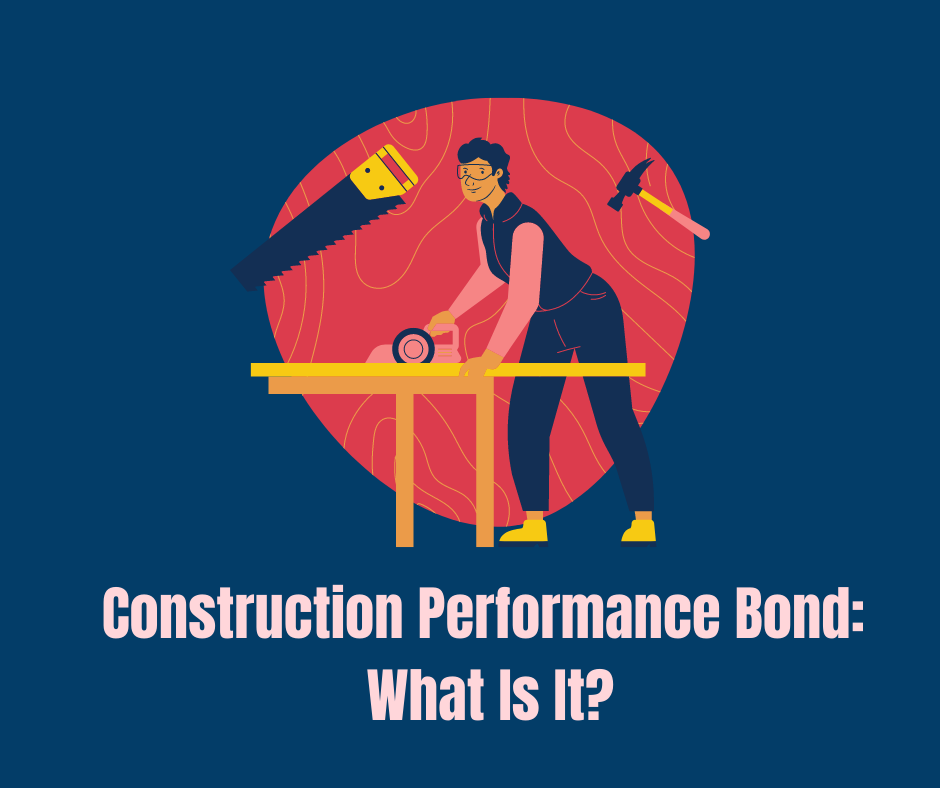Who will purchase the construction performance bond?
The query prompts a discussion of what a performance bond is. In essence, it is an insurer’s promise that if any harm or loss occurs to his insured during the construction process, he would pay for the claim. The bonding firm protects the owner from losses resulting from fraud, shoddy workmanship, or inability to finish the job.
This sort of insurance covers not only material damage but also labor costs when defective components are replaced after the project is completed. The goal of this type of insurance is to protect both clients and contractors while providing them with the highest level of security, allowing them to focus on their work without fear of financial liability if something goes wrong during the construction process.
A performance bond ensures that if a contractor defaults on a construction project, a third party will complete any necessary work and fulfill the original agreement between the owner and the contractor. Many business owners believe that their insurance firms or banks are holding their performance bonds on their behalf, but this isn’t always the case. You’re out of luck if you don’t have someone else to financially back up your half of the bargain.
What is the best way for me to locate a reliable performance bond company?
Although there are numerous companies that sell performance bonds, only a select few may be trusted. These firms consider all aspects of the construction project before recommending the optimum bond to cover all insurable risks.
As a result, when selecting a performance bond company, one should look into their insurance records and financial stability to see if they are capable of giving quality services. They must have an active license in the state, so you are unlikely to experience any legal issues in the future.
You may also seek references from prior clients so that you know who to trust for future projects. After you’ve gotten references, you may do some research on these organizations by looking up consumer reviews on the internet. This will help your business expand with the least amount of effort.
Who is responsible for the payment of the performance bond?
To receive the performance bond, the party requesting it will have to pay a premium or charge. Then, by engaging inspectors for verification, they’ll be responsible for providing the required security on the project site.
The price of performance bonds will vary depending on the size and location of the project. A number of factors influence the price of this bond, including estimated value, labor rates in a certain area, and even the client’s credit score.
As a result, these are critical factors to consider when selecting a company to provide you with performance bond services. You can receive better protection for your projects by paying greater premiums, but it’s not worth squandering money just because you can acquire them at a lower price.
Who are the parties involved in a surety bond?
A performance bond has three parties: the principal, the surety, and the obligor.
The owner first employs a contractor through a bidding process, and then they sign a contract; in this scenario, the customer is the owner. Before beginning construction work, the contractor must pay a performance bond to the owner so that any losses or damages suffered as a result of the contractor’s negligence can be compensated for.
Following the signing of a contract, the builder begins construction with necessary safety precautions in place to ensure that no damage to the surrounding property occurs. The contractor works carefully and responsibly without sacrificing quality, yet unforeseen events may force him to cease working, resulting in a breach of contract. In such instances, it is the responsibility of the insurance to compensate for the loss incurred by the constructor.
To ensure that no one on-site is harmed by an accident, there should be sufficient security measures in place, such as worker safety, suitable working equipment, and so on.
What are the requirements for obtaining a performance bond?
Before your project may be covered by a performance bond, the contractor must submit cost and time estimates, as well as pertinent site information. These precautions are being taken in order to minimize the financial loss to the owner in the event of a construction catastrophe.
If the insurance company is satisfied after reviewing all available facts, they will cover your project. Only when an insurer determines that contract work will be done on time and to a high standard can they offer their services to protect against unanticipated events.
Owners can obtain these bonds in two ways: by hiring a single contractor or many companies to work on their project at the same time, or by hiring a single contractor or numerous companies to work on their project at the same time. Multiple contractors working together can speed up project completion, but it also increases risk because the project would be shut down if anyone fails to fulfill what was promised.
If you are dissatisfied with the work being done on-site or discover something that requires re-inspection, the only alternative you have is to have the insurance company delay payments rather than stop work completely. There’s a potential that the insurer’s judgment won’t be in your favor if they look at things from the contractor’s perspective as well, but there’s no way to address this issue other than to wait for everything to settle.


